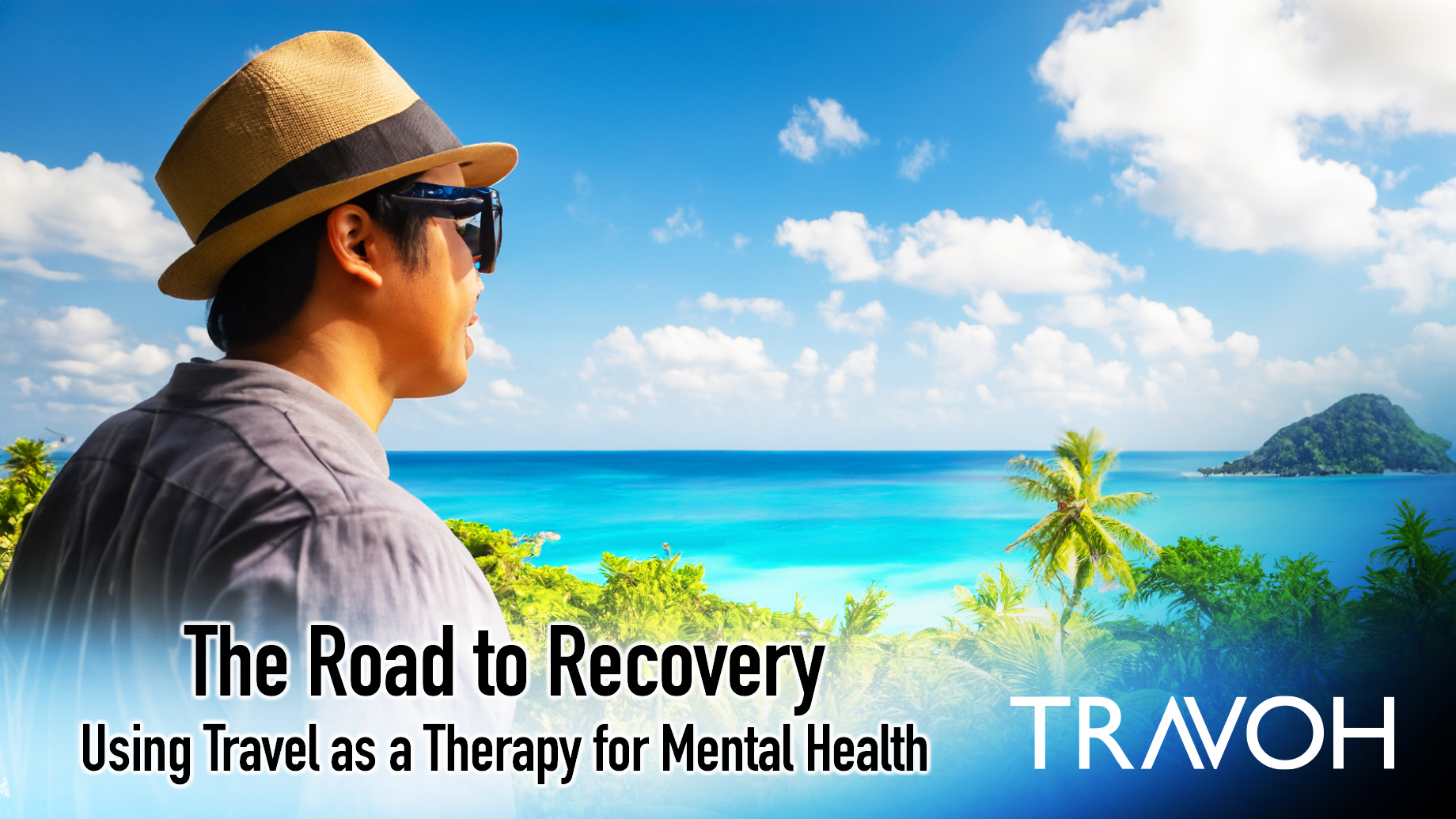
The age-old adage “Travel broadens the mind” has never been more relevant. Today, travel is not merely about exploring new destinations but about healing, growing, and discovering oneself. In this comprehensive look into travel as a form of therapy for mental health, we’ll explore the various ways travel can be used as a powerful therapeutic tool, contributing to the recovery and well-being of individuals struggling with mental health issues.
Introduction
Mental health challenges are a growing concern across the globe. Traditional therapeutic approaches are essential, but many therapists and mental health professionals are starting to recognize the additional healing power of travel. The process of planning, embarking, and reflecting on a journey can be a profound form of therapy, assisting individuals on the road to recovery.
Travel as a Multifaceted Therapeutic Tool
1. Breaking Routine and Creating Space
Often, individuals struggling with mental health issues may find themselves stuck in routines and environments that contribute to their challenges. Travel breaks this cycle, offering a fresh perspective and physical distance from daily stressors. This break can create the mental space needed for reflection and healing.
2. Exposure to New Cultures and Perspectives
Travel exposes individuals to diverse cultures and ways of thinking. This expansion of perspective can foster empathy, reduce prejudice, and provide alternative viewpoints on life, which can be deeply healing and nurturing for the mind.
3. Connection to Nature
The healing properties of nature are well-documented. Whether it’s a serene beach, a majestic mountain, or a peaceful forest, natural environments have a calming effect on the mind. Travel provides the opportunity to reconnect with nature, promoting relaxation and mindfulness.
Structured Travel Therapy Programs
1. Therapeutic Retreats
Therapeutic retreats are organized, guided experiences that combine travel with structured therapy sessions. They often include workshops, group therapy, individual counseling, and activities designed to promote mental well-being. These retreats are guided by mental health professionals and provide a supportive environment for healing.
2. Wilderness Therapy
Wilderness therapy uses outdoor activities and adventures as a medium for therapy. Activities such as hiking, camping, and kayaking are combined with therapeutic practices to encourage self-discovery, resilience, and emotional growth. These programs are usually guided by trained therapists and adventure experts.
Travel for Personal Growth and Self-Discovery
1. Solo Travel
Solo travel fosters independence, self-reliance, and self-discovery. By navigating new environments alone, individuals can confront their fears, discover their strengths, and engage in deep self-reflection. This form of travel can be empowering and contributes to building self-esteem and confidence.
2. Volunteering and Meaningful Travel
Volunteering or engaging in meaningful travel connects individuals with a sense of purpose. Helping others and contributing to a greater cause can create a sense of fulfillment and help in overcoming feelings of helplessness or depression.
Mindful Travel: A Journey Within
Mindful travel is more than a mere exploration of a destination; it’s a deliberate and thoughtful immersion into the journey itself. Engaging with the surroundings, embracing local customs, and savoring every moment creates a richer, more fulfilling travel experience. It emphasizes being present, which allows travelers to truly connect with a place and its people. This conscious engagement goes beyond traditional sightseeing and offers a deeper, more authentic connection to the world.
The practice of mindful travel also extends to self-care and awareness of one’s mental and emotional state. It encourages travelers to recognize and honor their feelings and thoughts as they move through different environments and experiences. This introspective approach fosters self-understanding and emotional balance. By integrating mindfulness techniques like meditation, breathing exercises, or mindful eating into the travel experience, individuals can create a journey that is not only about discovering new places but about self-discovery and inner peace. Mindful travel becomes a transformative practice, healing for both mind and soul and a way to find harmony within oneself and with the world. It turns the act of travel into a meditative experience, weaving together the exploration of outer landscapes with an inner journey of self-awareness and growth.
By incorporating mindfulness into travel, individuals can deepen the therapeutic effects. Mindful travel encourages full engagement with the experience, focusing on sensations, thoughts, and feelings. This conscious approach to travel promotes mental clarity and emotional balance.
Considerations and Precautions
1. Planning and Preparation
Planning a therapeutic travel experience requires careful consideration of individual needs, preferences, and mental health conditions. Consultation with mental health professionals is essential to ensure that the travel experience aligns with therapeutic goals.
2. Accessibility and Affordability
Therapeutic travel should be accessible and inclusive. Options for budget-friendly or local therapeutic travel experiences should be explored to ensure that financial constraints do not hinder access to this form of therapy.
3. Potential Challenges
Travel can be stressful, and for some, it may exacerbate mental health conditions. Awareness of potential triggers and challenges, and planning for coping strategies, are essential to ensure a positive experience.
Conclusion
The road to recovery is often a complex and deeply personal journey. Using travel as therapy for mental health presents a holistic approach, integrating the physical, emotional, and spiritual aspects of healing.
Travel’s therapeutic potential lies in its ability to break the routine, foster growth, connect with nature, expand perspectives, and provide structured, guided healing experiences. It’s more than a vacation; it’s a pathway to wellness, a road to recovery, and a journey to a healthier, more fulfilled self.
As mental health continues to be a critical concern, the exploration and integration of unconventional therapeutic tools like travel will likely grow. The merging of traditional therapy with the unique benefits of travel offers a rich, multifaceted approach to mental health treatment.
In our fast-paced world, where mental health struggles are increasingly common, the therapeutic power of travel shines as a beacon of hope. It reminds us that sometimes, the path to healing may be a path well-traveled, a road that takes us not only across the globe but deep within ourselves. Whether through structured therapeutic programs or personal journeys of discovery, travel stands as a profound ally in the fight for mental wellness, guiding us gently on the road to recovery.
For more insightful articles on travel and tourism, make sure to read more TRAVOH articles.

